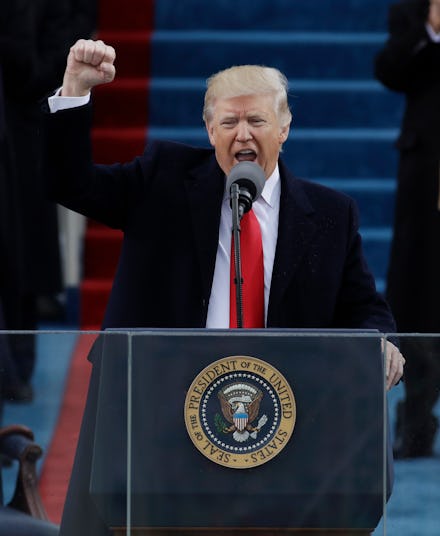Trump and Torture: A return to "black site" prisons and waterboarding?

In his first interview as president, Donald Trump said he believes torture works and that the United States should "fight fire with fire" to combat terrorism.
"Do I feel it works?" Trump told ABC News' David Muir. "Absolutely, I feel it works."
Of course, that Trump "feels" torture works does not mean it really does. A 2014 study by the Senate Select Committee on Intelligence showed that torture is an ineffective method of gathering information – it's also illegal and contrary to American values.
But Trump is reportedly considering signing an executive order reinstating the use of "black sites" and so-called "enhanced interrogation" techniques such as waterboarding, putting him at odds with some members of his own party — including Sen. John McCain, a former prisoner of war who vowed to fight back against Trump on the issue.
"The president can sign whatever executive orders he likes," McCain said in a statement. "But the law is the law. We are not bringing back torture in the United States of America."
What is Trump considering?
During the campaign, Trump repeatedly said "torture works" and that even "if it doesn't work, they deserve it anyway."
"Would I approve of waterboarding?" Trump said at a November 2015 rally in Ohio. "You bet your ass I would — in a heartbeat."
Waterboarding, the practice of pouring water over a subject to simulate drowning, has been illegal under federal law since former President Barack Obama banned the technique in 2009.
McCain and others have vocally opposed the possibility of Trump reinstating the use of the torture tactic, but Vice President Mike Pence suggested in November that the Trump administration would leave the door open to torture.
"We're going to have a president again who will never say what we'll never do," Pence said.
Trump is also considering bringing back the use of secret overseas "black site" prisons to detain terror suspects — a move which could possibly alienate U.S. allies in the fight against ISIS and al-Qaeda, according to Reuters. Obama ended the Bush-era program in 2009.
In the ABC News interview, Trump said he would rely on the advice of Defense Secretary James Mattis and CIA Director Mike Pompeo. Pompeo has previously left open the possibility of using torture tactics, but said during his confirmation hearing that he would "absolutely not" do so. Trump has previously suggested Mattis is not in favor of waterboarding — "I've never found it useful," the president recalls Mattis saying.
According to a report in Politico, both Mattis and Pompeo were "blindsided" by reports that Trump was considering signing the executive orders on torture and seem to oppose reinstating the use of waterboarding and black sites.